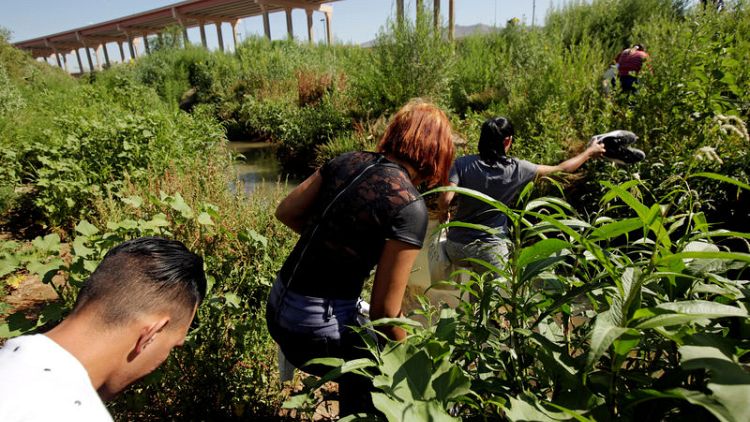By Julio-Cesar Chavez and Andrew Hay
EL PASO, TEXAS/TAOS, N.M. (Reuters) - The United States is more than doubling the number of asylum seekers it returns to Mexico in one city and adding groups like Cubans as it rapidly expands a policy to make migrants wait out claims south of the border, Mexican and U.S. officials said.
The policy, known as the Migrant Protection Protocols (MPP), is being applied to all Spanish-speaking asylum seekers, other than Mexicans, at three U.S.-Mexico border crossings, said a U.S. government official familiar with the programme, who asked not to be named.
The Trump administration plans to expand the programme, which faces court challenges, across the border to act as a deterrent to frivolous asylum claims during a surge in Central American migrant families.
A U.S. Department of Homeland Security official said the administration was considering building temporary immigration courts along the border to process MPP returnees.
The MPP expansion follows Mexico's agreement earlier this month to receive thousands more migrants under the programme.
As of June 19, according to Mexican officials, 13,987 people had been returned to Mexico under MPP.
In its first months, the policy primarily applied to Central American migrants, but as of Monday the United States began applying it to Spanish speakers more broadly, including Cubans, said Rogelio Pinal, a municipal official in Juarez, Mexico.
Cubans, a political force in U.S. election swing state Florida, have a history of being welcomed in the United States.
Pinal said his office was told returns from El Paso to Juarez would increase to 500 per day from around 200.
The U.S. Department of Homeland Security (DHS) said the government was "actively pursuing expansion plans across the board to include all individuals, unless specifically exempted," in MPP returns.
The U.S. official said MPP would be expanded to cities in Arizona and south Texas, which could include Brownsville. A Mexican official confirmed new locations would include Brownsville.
Migrant advocates have raised concerns that asylum seekers have little access to legal counsel and are vulnerable in Mexican border cities, which have some of the highest homicide rates in the world.
Ruben Garcia, who runs El Paso's largest migrant shelter, said there had been a sharp fall in the number of migrants released into the United States by U.S. authorities.
Garcia said reduced migration during summer heat played a role, but tighter immigration enforcement in Mexico and the MPP programme were driving forces in the drop to around 125 releases per day from up to 700 three weeks ago.
(Reportting by Julio-Cesar Chavez in El Paso and Andrew Hay in Taos, New Mexico; additional reporting by Dave Graham in Mexico City and Kristina Cooke in San Francisco; Editing by Steve Orlofsky)
